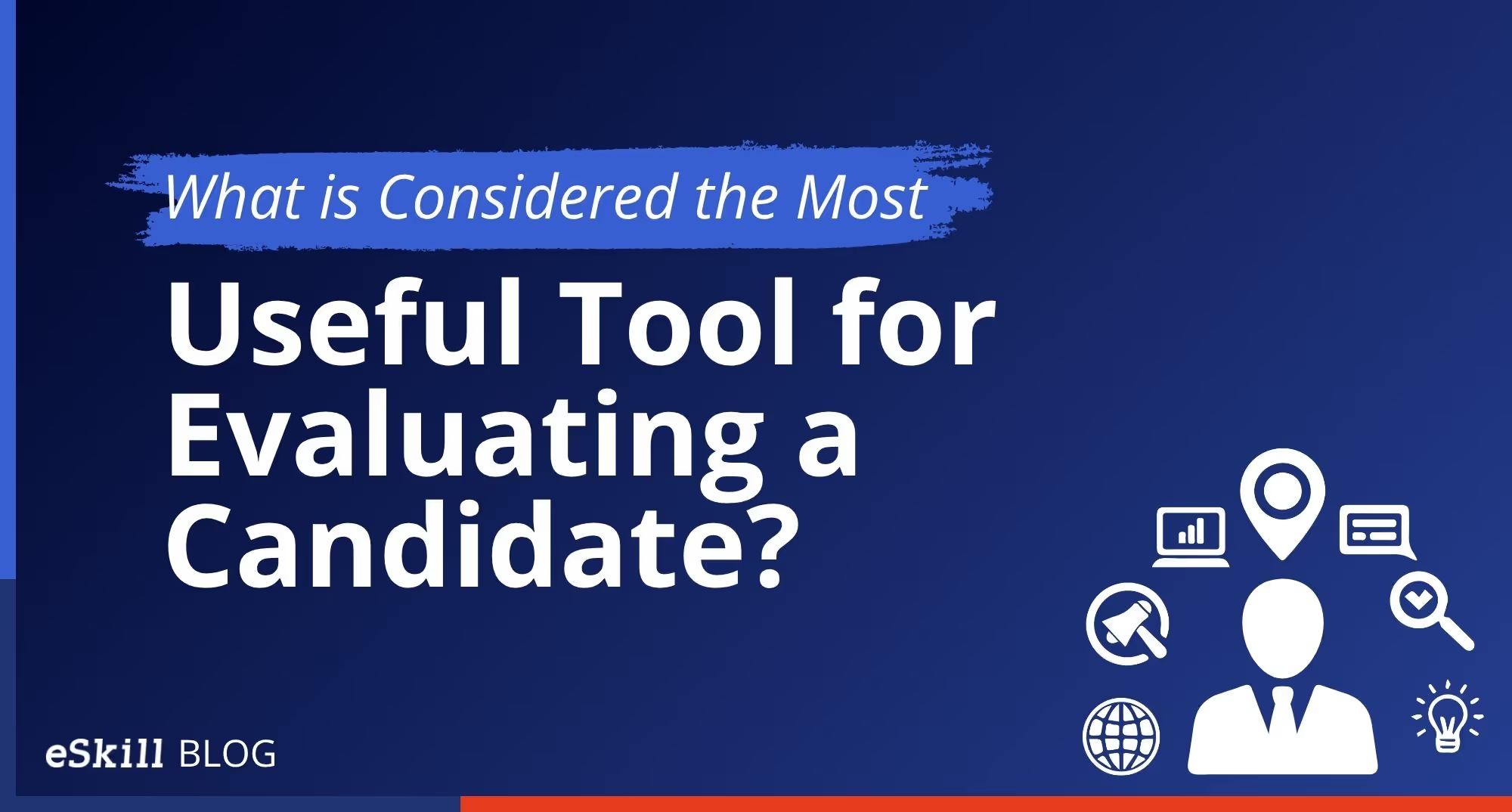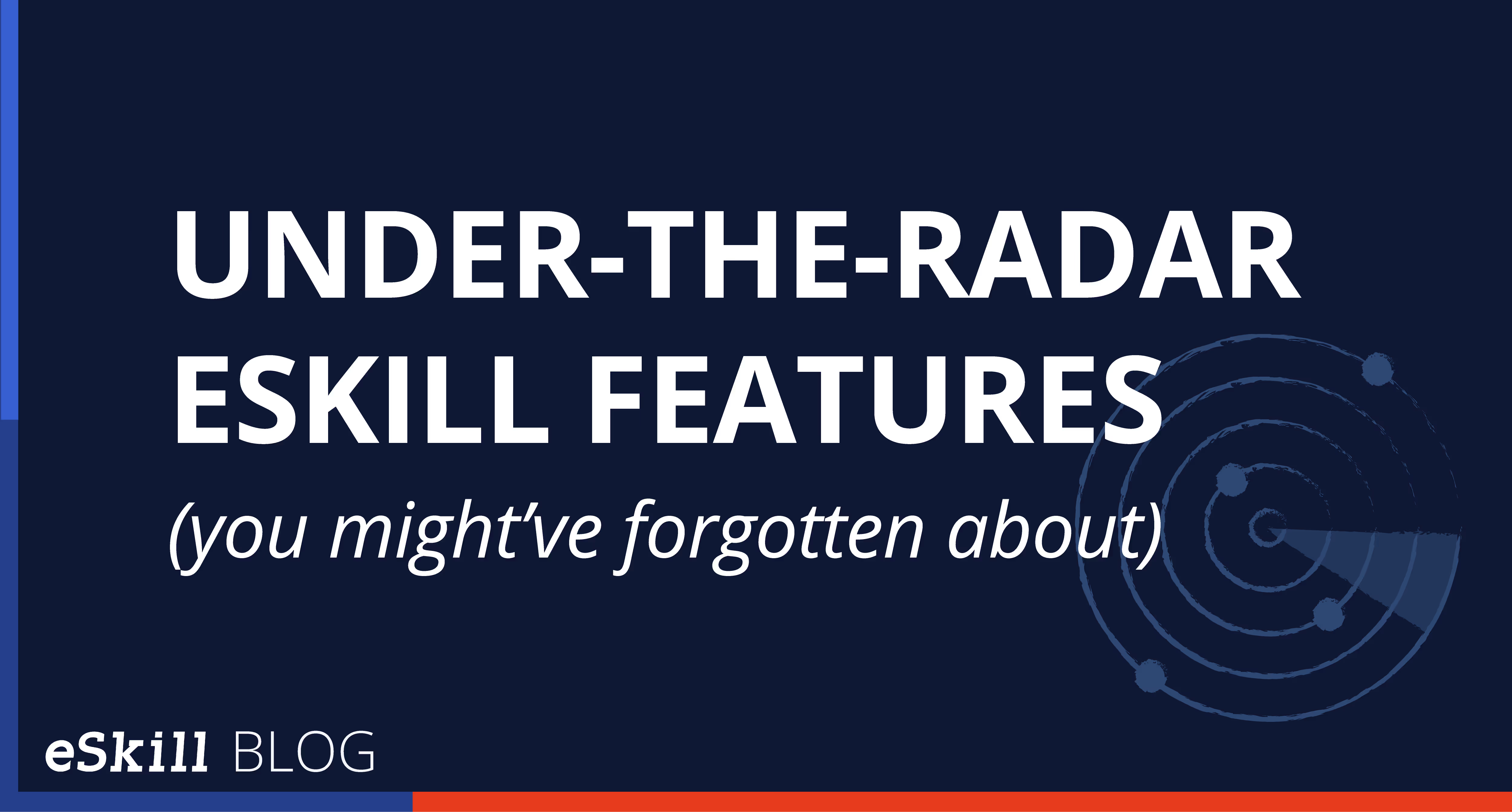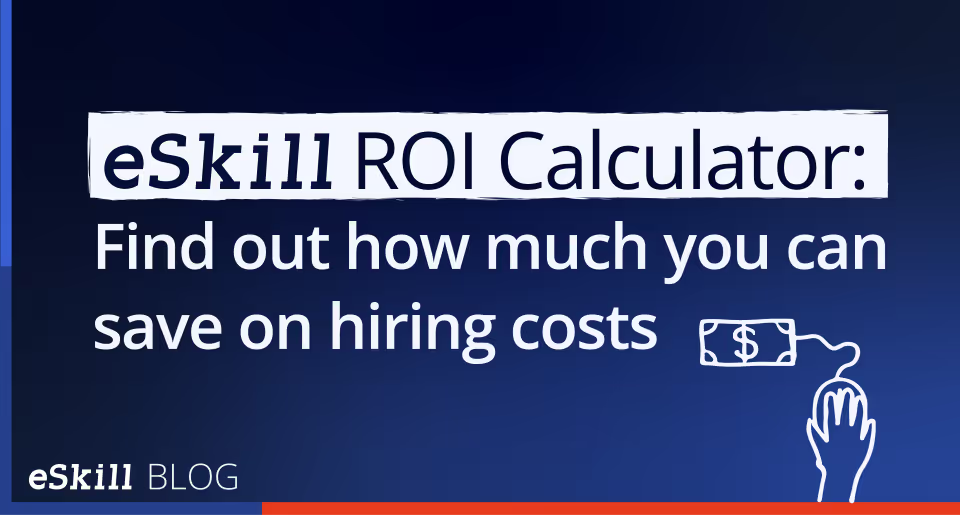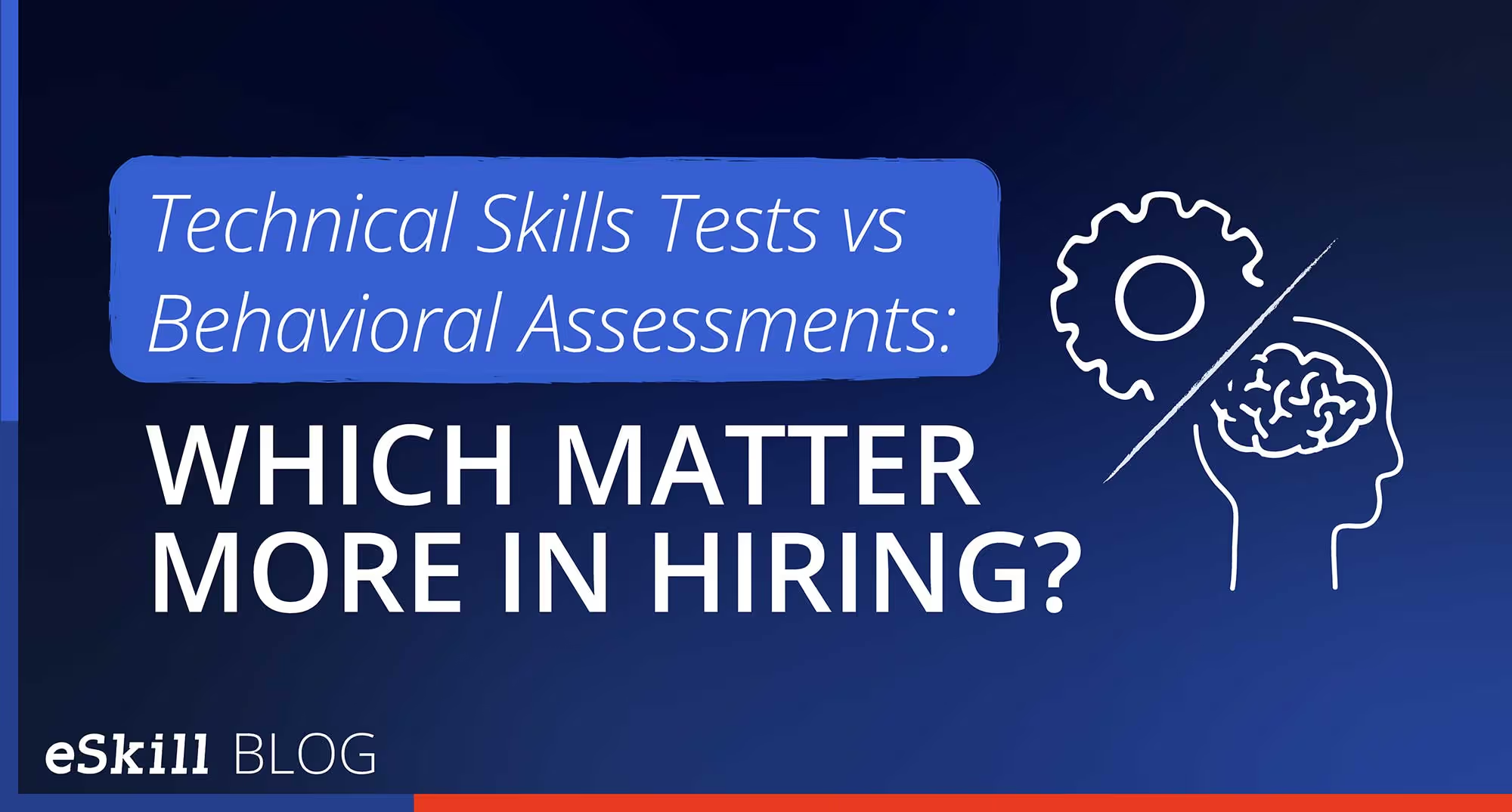In today’s competitive job market, finding the right talent to fill crucial positions is a top priority for companies. Traditional recruitment methods often fall short in evaluating a candidate’s true potential and fit for a role. As a result, companies are turning to pre-employment assessment tools to gain deeper insights into job candidates’ abilities, skills, and personality traits.
Hiring is time-consuming and oftentimes frustrating. While the average time-to-hire is about 20 to 30 days, it can be as high as 40 days for finance, engineering, IT, and research companies.
Streamlining recruiting is a top priority for companies because they need qualified candidates to fill critical jobs. This has become difficult for employers worldwide due to a talent shortage that has been in the works for the past 10 years.
Companies in all industry sectors have implemented digital transformation initiatives and adopted new technology. As a result, their hiring needs and requirements for many jobs have also changed. Many applicants’ skills have not kept pace, and employers are having trouble filling critical job roles.
More and more organizations are implementing pre-employment assessment solutions, which are now considered an essential part of a good hiring process.
Why Organizations Use Pre-Employment Assessment Tools
Business leaders have learned that they gain a competitive advantage by using pre-employment assessment tools. HR teams can instantly screen applicants and review candidates’ skills objectively and without bias. This helps them hire the best candidates, which leads to greater productivity and higher profits. These are some benefits HR leaders say their organizations receive from using pre-employment assessments.
- Expedite Applicant Screening: Organizations often receive thousands of applications in response to a job posting. So, they need an easy and efficient way to identify top candidates and weed out unqualified ones. Pre-employment assessments improve hiring outcomes and decrease time-to-hire by helping HR teams eliminate unqualified candidates so they can focus on the best-qualified candidates.
- Minimize Hiring Mistakes: Every organization wants to avoid bad hires because they are expensive, counterproductive, and can negatively affect team morale. Bad hires can cost up to $240,000, including recruiting expenses, disruption to current staff, project delays, possible litigation costs, and loss of customer goodwill. Pre-employment assessment tools help hiring teams confirm applicants have the skills and experience to do a job and show which candidates are a good fit for their corporate culture.
- Flexible Pre-Employment Assessment Tools: eSkill clients can access hundreds of validated job- and subject-based pre-employment assessments in the eSkill Assessment Library. HR professionals can use them as-is, modify them by adding and deleting questions, or select individual questions for a customized option. For instance, suppose a medical practice wants to hire an administrative assistant with good typing skills and strong MS Office® proficiency with a working knowledge of medical terminology. In this case, the hiring team can build a pre-employment assessment using questions from the MS Word®, MS Excel® Medical Terminology, and Medical Typing skills tests.
- Simulations: A candidate’s assessment results can show they have the right skills and experience, but they may not be able to apply the knowledge on the job. So, many HR leaders include simulations in pre-employment assessments that require applicants to handle realistic job situations. For example, if you are hiring paralegals who will have a lot of client contact, you can build an assessment using questions from the Paralegal Skills, Customer Service, and eDiscovery Specialist skills tests and include Chat and Multitasking simulations.
- Video Response Questions: HR professionals include video response questions in pre-employment assessments when evaluating skills like verbal communication and foreign language skills. For example, if you are hiring technical support representatives to demonstrate products for prospective customers during video meetings, video response questions will confirm they can explain technical concepts so users can understand them.
- Dedicated Assessment Expert: The eSkill Talent Assessment PlatformTM is so easy to use that most HR teams have it up and running within a day. However, they still like knowing they can get help when needed. Every client with an eSkill subscription is assigned a Dedicated Assessment Expert who can answer questions and assist with developing and implementing hiring strategies.
Why Pre-Employment Assessment Tools Are Essential for Hiring
When it comes to hiring, there is no one-size-fits-all approach. Organizations have unique needs, and the assessments should align with the requirements of their job roles and company culture.
Pre-employment assessments are invaluable tools that help HR teams make well-informed decisions, minimize hiring bias, and build a skilled and cohesive workforce that drives your organization toward success. These are some reasons why pre-employment assessment tools are considered essential to recruiting success.
- Streamline Hiring: The hiring process can be time-consuming and resource-intensive. Pre-employment assessment tools provide a way to efficiently screen many candidates in a short time. Companies can customize the tests to match specific job requirements, helping them quickly identify candidates with the necessary qualifications. By filtering out unsuitable candidates early on, recruiters can focus their efforts on evaluating the most promising individuals, ultimately speeding up hiring.
- Objective Data-Driven Decisions: Subjectivity in hiring can lead to biased decisions. Pre-employment assessments offer an objective and data-driven approach to candidate evaluation. These tests provide standardized metrics that assess various aspects, such as cognitive abilities, problem-solving skills, and behavioral traits. By relying on concrete data, companies can make better informed and fairer decisions, reducing the risk of unconscious bias in the selection process.
- Assessing Job-Related Skills: Different roles require specific skill sets and competencies. Pre-employment assessment tools help recruiters accurately measure a candidate’s job-related skills, providing valuable insights into their potential performance on the job. For example, a programming test can assess a developer’s coding abilities, while a customer service simulation can gauge a candidate’s ability to handle challenging customer interactions. Evaluating these skills early on helps identify candidates who can seamlessly fit into their designated roles, contributing to the company’s overall success.
- Predicting Job Performance: One of the primary objectives of pre-employment assessments is to predict a candidate’s job performance. Traditional interviews and resumes may not reveal a candidate’s actual capabilities, leading to costly hiring mistakes. On the other hand, pre-employment assessment tools offer a predictive model that correlates a candidate’s performance on the test with their potential on-the-job success. This predictive approach helps companies identify candidates who are likely to excel in the role, increasing the chances of making a successful long-term hire.
- Identifying Cultural Fit: Apart from assessing skills and abilities, companies also seek candidates who align with their organizational culture. Pre-employment testing tools often include behavioral assessments that delve into a candidate’s behavior, values, and work style. By understanding a candidate’s personality traits, companies can determine whether they would thrive in the company’s work environment, fostering a positive and productive team dynamic.
- Cost-Effectiveness: Traditional recruitment methods can incur substantial costs, from advertising job openings to conducting multiple rounds of interviews. Pre-employment assessment tools provide a cost-effective solution for talent acquisition. Companies can administer pre-employment assessments remotely, eliminating the need for physical assessment centers and reducing travel expenses. Moreover, the tests can be scalable, accommodating a large number of candidates simultaneously, further optimizing the recruitment budget.
In the rapidly evolving recruitment landscape, pre-employment assessments are a powerful tool for companies that strive to make informed hiring decisions. By streamlining hiring, providing objective data-driven insights, and predicting job performance, pre-employment assessment tools are revolutionizing how companies evaluate job candidates.
Why Use Pre-Employment Assessment Tools
The ability to assess job-related skills and identify cultural fit ensures that companies hire candidates who possess the necessary qualifications and align with the company’s vision and values. Embracing pre-employment assessment tools empowers companies to build a talented and cohesive workforce, propelling them toward success in a dynamic business world.
How to Choose a Pre-Employment Assessment Solution Provider
Incorporating pre-employment assessments into your hiring process can significantly enhance the likelihood of finding the right candidates. You gain a comprehensive understanding of each candidate’s strengths and weaknesses by combining cognitive ability tests, technical skills assessments, behavioral evaluations, personality tests, situational judgment tests, emotional intelligence assessments, and language tests.
The first question HR leaders ask when they start evaluating pre-employment assessment tools is what features and functionality they need. This is a difficult question to answer because every organization has unique needs. The best pre-employment assessment solution for your company depends on the jobs you need to fill and the required skills for each. However, these are features every hiring team should look for when they evaluate pre-employment assessment solutions.
- Assessment Library: A pre-employment assessment solution should include a library of validated skills tests. The eSkill Talent Assessment PlatformTM has hundreds of validated job- and subject-based skills tests you can use to assess applicants for virtually any job. For example, if you are recruiting software engineers with strong Java and C# skills, the Java Developer and C# Developer skills tests will help you identify top candidates. You can also use cognitive tests such as Logical Thinking and Verbal Reasoning to measure other essential skills.
- Customization: The skills required for your jobs differ from those of other companies. So, using off-the-shelf pre-employment assessments may not be an option. The eSkill Talent Assessment PlatformTM allows you to use pre-prepared tests or create customized pre-employment assessments. You can choose any job- or subject-based skills test and add or delete questions or build assessments using questions from multiple skills tests. You can even add your own questions if needed.
- Simulations: A guaranteed way to verify applicants can do a job is to ask them to complete tasks they will perform if hired. So, your pre-employment assessment solution must offer the option to include simulations in skills tests. The eSkill Talent Assessment PlatformTM offers simulations such as Digital Literacy and MS Office®. The Digital Literacy simulation helps you assess applicants’ basic computer knowledge and Internet and social media expertise, and the MS Office simulation allows you to accurately assess candidates’ Word® and Excel® proficiency.
- Test Hard and Soft Skills: Pre-employment assessment tools should allow you to test both hard and soft skills. Hard skills are abilities that candidates need to perform a job, and soft skills are behavioral attributes and work styles that determine whether a candidate is a good fit for your company’s culture. A candidate must have good scores on both types of assessments to have the best chance for success within your organization.
- Behavioral Assessments: Pre-employment tests that measure hard skills confirm applicants can do a job, but they do not tell you whether they are a good fit for your company culture. Poor job fit is the cause of 89% of hiring failures, and high turnover is one of the leading causes of reduced productivity. Therefore, many HR teams include behavioral assessments in their eSkill Talent Assessment PlatformTM solution. They can verify that candidates have soft skills like communication, teamwork, and problem-solving abilities and that their work style is compatible with their company culture.
- Video Response Questions: Many abilities, such as foreign language and verbal communication skills, are difficult to measure using written pre-employment assessment tests. So, industry-leading pre-employment testing solutions like the eSkill Talent Assessment PlatformTM enable HR teams to include video response questions in skills tests. Hiring team members review and rate candidates’ responses and add their comments. They have no direct contact with candidates, which reduces the chance of unconscious bias influencing hiring decisions.
Get Started with Pre-employment Assessments
Organizations are reevaluating their hiring processes to hire top candidates in a tight talent market, which shows no signs of abating. For many, this includes implementing pre-employment assessments.
Pre-employment assessment tools offer organizations an easy way to recruit top candidates efficiently. As a leading pre-employment assessment solutions provider, eSkill can provide your organization with top-quality skills tests and behavioral assessments.
Do you want to see how pre-employment assessment tools help you make better hiring decisions more efficiently? Contact us to request a demo.

Get ademo.






